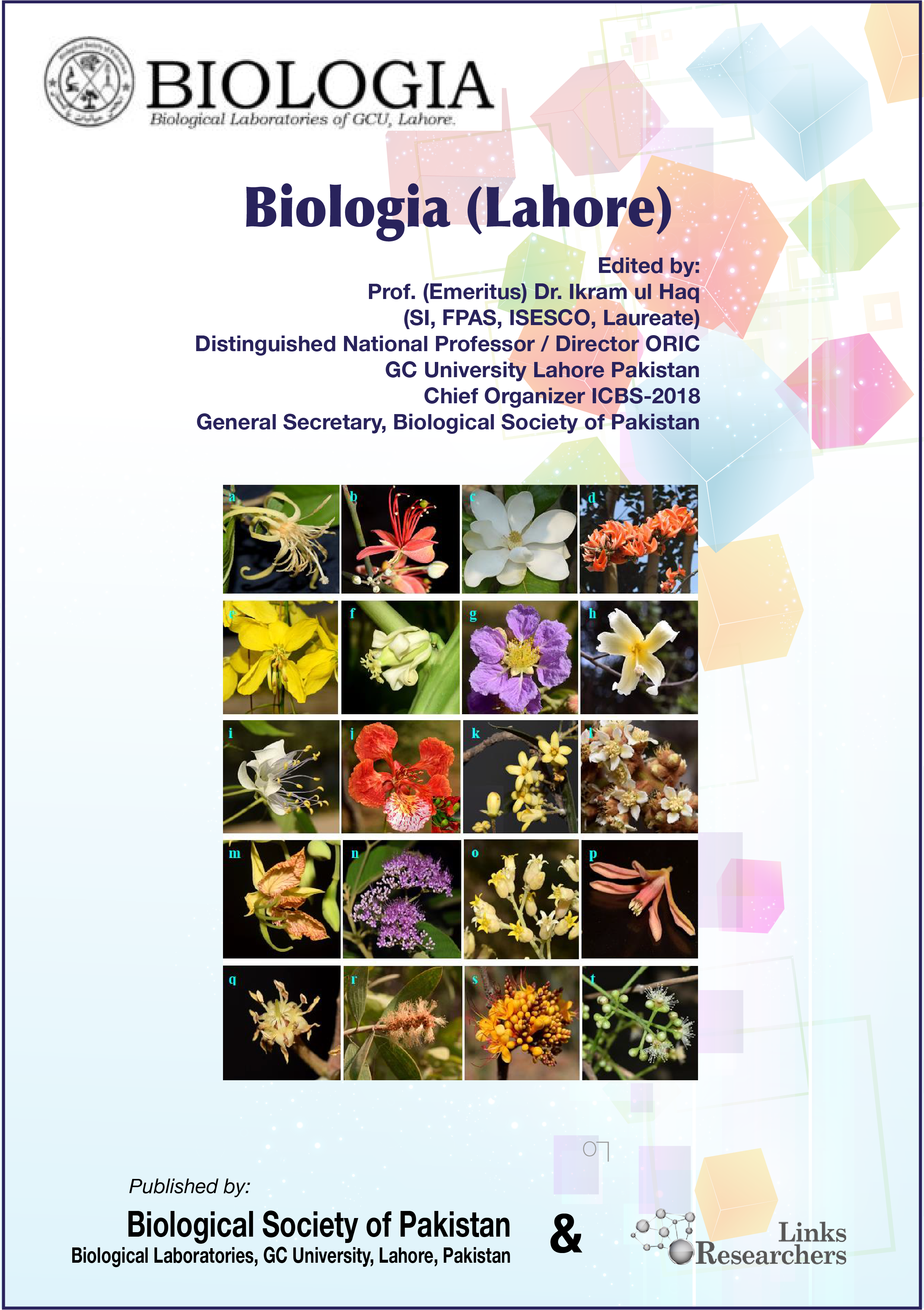Assessment of Anti-Hypertensive Potential of Colebrookea oppositifolia by Angiotensin-Converting Enzyme Inhibition
Assessment of Anti-Hypertensive Potential of Colebrookea oppositifolia by Angiotensin-Converting Enzyme Inhibition
Rukhsana Anwar1*, Muhammad Usman Khalil1 and Kanwal Ashiq1,2
ABSTRACT
This study is aimed to evaluate the in vivo acute and sub-acute anti-hypertensive effect of methanolic extract of Colebrookea oppositifolia leaves. The sub-acute anti-hypertensive activity of a methanolic extract of Colebrookea oppositifolia 250 mg/kg were studied for 14 days in rats. Captopril (20 mg/kg) was given as a standard control. Non-invasive blood pressure (NIBP) monitoring technique was used to assess the blood pressure of rats. The frequency of hippuric acid synthesis from the hydrolysis of Hippuryl-L-Histidyl-L-Leucine was utilized to calculate angiotensin-converting enzyme (ACE) activity. The results showed that in comparison to hypertensive rats, the test doses of the extract significantly decreased systolic blood pressure (96.75±3.9 mmHg and 104±3.8 mmHg), diastolic blood pressure (73.12±5.2 mmHg and 65.37±8.2 mmHg), mean arterial blood pressure (81±4.1 mmHg and 78.25±6.7 mmHg), and heart rate (370±33.9 beats/min and 298.25±19.1 beats/min) respectively as compared to hypertensive rats. Sub-acute study results showed that the extract significantly decreased systolic blood pressure (97.33±3 mm Hg), diastolic blood pressure by (68.6±4.6 mmHg), mean arterial blood pressure (78.17±3.7 mmHg), and heart rate 335.8±27.5 beats/min as compared to hypertensive control rats. Furthermore, methanolic extract suppressed 45% ACE activity in hypertensive rats compared to the normal control group. According to the current findings, a methanolic extract of Colebrookea oppositifolia leaves decreases blood pressure via constraining the angiotensin-converting enzyme (ACE).
To share on other social networks, click on any share button. What are these?







